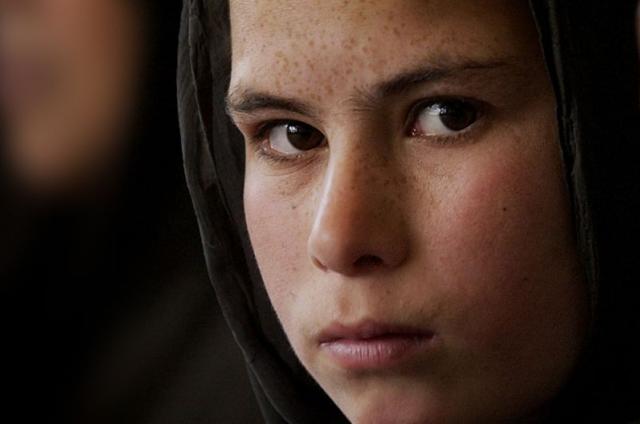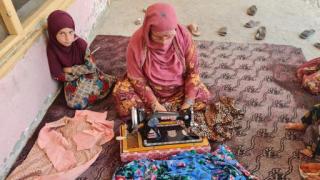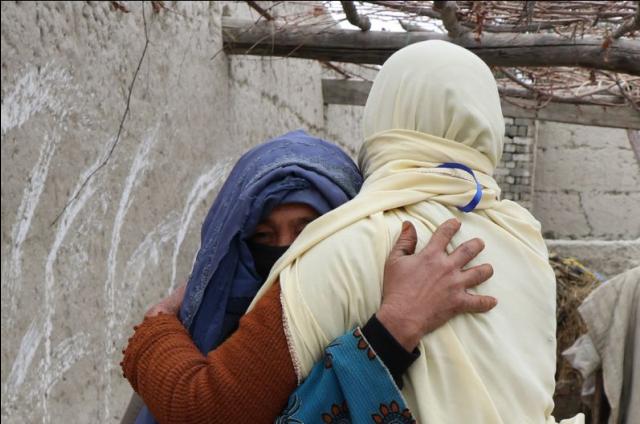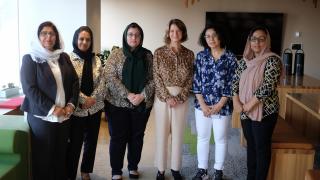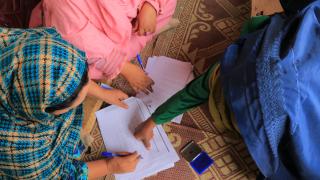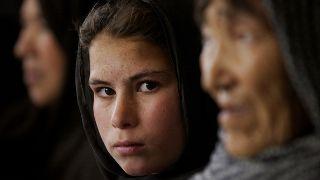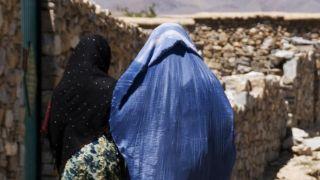Country profile - Afghanistan
Afghanistan has faced decades of conflict, economic decline and insecurity. After the de facto authorities took control in August 2021, most international funding was cut and the economy collapsed. Nearly 90% of the population now faces poverty. Women are barred from most jobs, further straining households and the economy. Climate disasters like droughts and earthquakes have worsened food insecurity, with 14.8 million people facing crisis levels of hunger.
Nevertheless, when equipped with vocational and economic tools, Afghan women demonstrate the power to change their lives.
About Afghanistan
The social and economic outlook for Afghan women has worsened
- Millions of women in Afghanistan have little or no access to healthcare.
- Women are prohibited from working in most sectors, cutting off vital income for families.
- Girls are barred from attending school beyond 6th grade, and universities are closed to women.
- Women face severe restrictions on movement and are often not allowed in parks, gyms or other public venues.
- Intimate Partner Violence, early and forced marriage, is prevalent.
Our work in Afghanistan
Despite the upending of women’s access to education, employment and personal freedoms, Women for Women International’s locally-led team continues to deliver in areas where permission has been granted.
We still see remarkable fortitude among the women we serve as they strive for self-sufficiency and financial independence.
Today, I feel like a fortunate person. I have my own business, and I have become a self-sufficient woman.
Since 2002, we have operated in five provinces of Afghanistan. Participants of our Stronger Women, Stronger Nations programme receive vocational training for jobs like tailoring and knitting, animal husbandry, participating in savings and self-help groups, and learn to invest in their businesses as they receive stipends. Throughout this curriculum, they receive an income and grow their own savings. They are also trained by local staff on how to influence decision making in their households, and support social change in their communities.
The impact of your support
Creating real change
- Since 2002, a total of 138,726 Afghan women have been reached.
- 1,984 women graduated in 2024.
- The percentage of women involved in decisions about family planning doubled during the course of the program, from 32% at the start to 65% at graduation.
- Since inception, our local team has reached 6,677 men through our Men’s Engagement Programme.
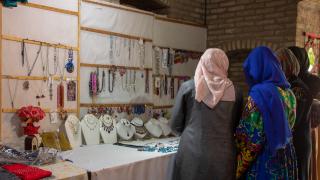
Ferhana's story
Four years ago, Ferhana graduated from the Stronger Women, Stronger Nations programme in Afghanistan, and it changed everything for her.
Women for Women International supported her burgeoning jewellery business, so that she could set up a shop. It provided a vital source of income since Ferhana is the sole breadwinner for her family. Later, she had the confidence to persuade the authorities to allow her to keep the shop open.
I hope that we, as Afghan women, keep enduring and showing up for each other. We have the power to change things and I will do whatever I can to keep my shop running so that my children and also other women who work with me see a future for themselves.
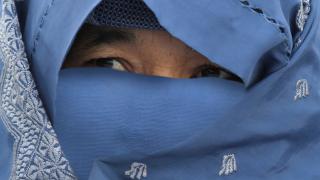
AFGHANISTAN REPORT:
"NO ONE HEARS OUR VOICES"
In their own words, Afghan women call for women's rights, inclusion in public life, urgent economic relief and for the international community to step in solidarity with them.
In interviews, Afghan women and women’s rights organisations describe their experiences in Afghanistan and set out their hopes for the future. In their own words, Afghan women in the report call for women’s rights, inclusion in public life, urgent economic relief, and for the international community to step up in solidarity with them.
AFGHANISTAN REPORT:
"WHERE I AM GOING AND WHERE I AM"
The personal and professional opportunities and challenges facing Afghan women human rights defenders outside Afghanistan.
Stories from Afghanistan
Zarghuna
subtitle:
One of my friends told me about Women for Women International and how it provided training for women. That’s when I learned that I wasn’t alone in my suffering. There are other women, who have the same pain.
Yusra
subtitle:
I was very disappointed and stressed when the new government (in Afghanistan) took over because it was so hard for me to enrol in this programme, and suddenly I couldn't learn anything, but when I heard about the resuming of the programme, I was very happy.
Obaida
subtitle:
Being in the programme, I enjoyed having the space to connect with other women in the skill-building and social empowerment classes. I was learning things that I never imagined I would have the opportunity to learn in my life.
Read Our New Report:
Lost in Consultation: International Community Failing at Meaningful Engagement with Afghan Women
A comprehensive report highlighting the exclusion of Afghan women from critical UN meetings with the Taliban.
Afghanistan is facing the most serious women’s rights crisis in the world, ranking 177 out of 177 countries on the Women’s Peace and Security Index. Since taking power, the de facto authorities have subjected Afghan women to exceedingly restrictive policies, which prevent them from accessing the full spectrum of their rights – including banning women from secondary and higher education, working for NGOs, political and social participation, access to public spaces such as parks and in some places a ban on them leaving the house without a mahram (close male relative).
The 'Lost in Consultation' report reveals the international community’s lack of willingness to engage Afghan women in discussions about their future. Compiled from responses of 213 women-led organisations across Afghanistan, this report sheds light on the urgent need for accountability and transparency.
Read more
Following the conclusion of the 77th session of the UN General Assembly in New York, read our Global Policy and Advocacy Manager Nisha Singh's reflections on the past year of global advocacy, research and programme delivery to support women in Afghanistan.
Afghanistan: We're Here To Stay
subtitle:
One year into the humanitarian and economic crisis in Afghanistan and the situation continues to worsen. Read about how we at Women for Women International are supporting our Afghan sisters.
In the past 12 months, we have seen women's rights in Afghanisan roll back - and they continue to be restricted more and more.
Hear from Afghan women
subtitle:
We've compiled a list of books, blogs, podcasts, (and more!) so you can hear directly from Afghan women and learn about their inspirational and courageous stories.
In Afghanistan, women will have to wear a burqa in public. While the Taliban promised a moderate government when they took power again in 2021, more and more freedoms for women are now being curtailed.
Please Don't Forget Afghanistan
subtitle:
Latifa Faqirzada worked for Women for Women International - Afghanistan for nearly four years. With the help of the UK government, she left Kabul in August 2021 during the final days of the US/UK troop withdrawal. She is currently residing in London and advocating for the women who remain in Afghanistan. This blog is her personal story.

